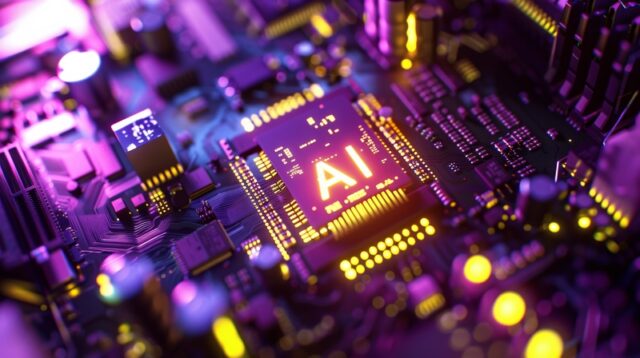GPU or AI accelerator? Which is the right choice [Q&A]

As enterprises roll out more AI applications, GPUs are in high demand to provide the computing power required to meet the demands of certain AI workloads.
But GPUs aren't the only game in town, there's rising interest in AI accelerators as customers seek choice and flexibility when it comes to their businesses. Last month, Intel and IBM announced a collaboration the availability of Intel Gaudi 3 AI accelerators on IBM Cloud.
We spoke to Rohit Badlaney, general manager for IBM Cloud Product and Industry Platforms and Saurabh Kulkarni, vice president, Datacenter AI Strategy and Product Management at Intel, to discuss the evolving landscape of AI chips and accelerators.
BN: Can you explain the difference between AI accelerators and GPUs?
RB: GPUs are general-purpose processors originally built for graphics but also widely used for AI and HPC workloads because of their parallel processing power. While effective for AI training, GPUs may not be the most efficient solution for inferencing workloads. AI accelerators, such as Tensor Processing Units (TPUs) and ASICs, are purpose-built for AI tasks, offering optimized performance and energy efficiency, particularly for large-scale inference. These accelerators excel in environments where speed and power efficiency are crucial.
SK: Intel’s Gaudi 3 AI accelerator is purpose built for specific AI workloads. While it shares characteristics with GPUs, like handling massive amounts of parallel data it's optimized around the unique needs of deep learning, such as inferencing and fine-tuning for large language models (LLMs) and inference at scale. AI accelerators like Gaudi often result in better performance, cost and efficiency for specific GenAI tasks.
BN: Why have AI accelerators recently gained traction with enterprises?
RB: AI Accelerators are continuing to emerge as another option to GPUs because their total cost of ownership can be significantly lower. GPUs can power large-scale AI workloads, but many enterprises don’t need that much compute power for less intensive AI workloads, so accelerators can help keep costs low, while maintaining high levels of scalability and efficiency.
SK: In addition, AI accelerators have gained traction because enterprises are moving from AI experimentation to large-scale deployment. As models grow in complexity especially in generative AI, traditional CPUs may not always deliver the performance needed for training and inference at scale. Accelerators specialized silicon such as Gaudi are purpose built to handle the parallel processing demands of AI workloads, helping business achieve better performance, faster time to value and improve cost-efficiency.
BN: What do businesses need to take into account when tailoring their approach to AI?
RB: One of the key considerations for businesses when tailoring their approach for AI is that it's not a one-size-fits-all approach for AI Infrastructure just as there is not a one-size-fits-all approach to hybrid cloud. Enterprises, especially those in highly regulated industries, need to have a strategically designed hybrid AI architecture to support data privacy and security while supporting innovation. Enterprises need to focus on understanding the uniqueness of their business processes and applications then develop a workload placement strategy based on where data should reside in which environment. These decisions should be based on resilience, performance, security, compliance, and total cost of ownership, so enterprises can employ a full stack approach across their entire IT estate. IBM Cloud offers unique platform for enterprises to achieve these objectives with a hybrid AI stack that is built on a trusted cloud architecture.
SK: I agree that it is not on size fits all. In fact, businesses need to also clearly define their AI goals, whether that's improving operational efficiency, enhancing customer experiences, or enabling new products and services. And then, the quality and availability of data are crucial. Managing the end-to-end data pipeline to meet data sovereignty, security and privacy requirements is crucial for enterprises while making infrastructure related decisions to collect, store and manage data. Finally, businesses should also foster a culture of continuous learning to account for the rapid changing AI landscape. Having the right tools, and the right collaboration in place is crucial to adapting and scaling solutions effectively.
BN: What factors do IT managers need to consider to make an informed choice of processor?
RB: There's no universally 'right choice' per se between GPU or AI accelerators. When IT managers are making their decisions, the selection needs to be based on the specific AI workload they need to accomplish. Similar to a workload placement strategy, enterprises need to analyze their AI workloads based on model size, number of concurrent users, throughput and latency requirements to determine the best option for latency and cost.
SK: To build on that, our role is to guide customers through those questions and help them identify the most efficient, scalable, and cost-effective solution -- whether that’s a GPU, an AI accelerator, a CPU, or a hybrid deployment. The goal isn’t to choose the most powerful option, but the most purpose-fit one.
BN: How are IBM and Intel working together to provide support for Gen AI workloads?
RB: IBM and Intel both remain committed to bringing AI to enterprises and meeting our joint clients where they are on their AI innovation journeys. We aim to help clients more cost effectively test, innovate and deploy generative AI solutions as they balance the cost associated with the infrastructure needed to drive performance. Data security and trust are at the heart of everything we do, and we are working with key partners like Intel to deliver this approach to our clients. With Intel's Gaudi 3 AI accelerators on IBM Cloud, we are arming our clients with the choices they need to meet their specific AI needs.
Image credit: Dmytro Lopatin/Dreamstime.com